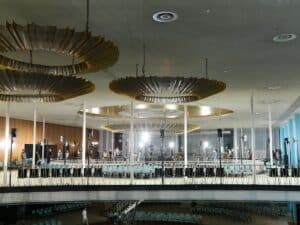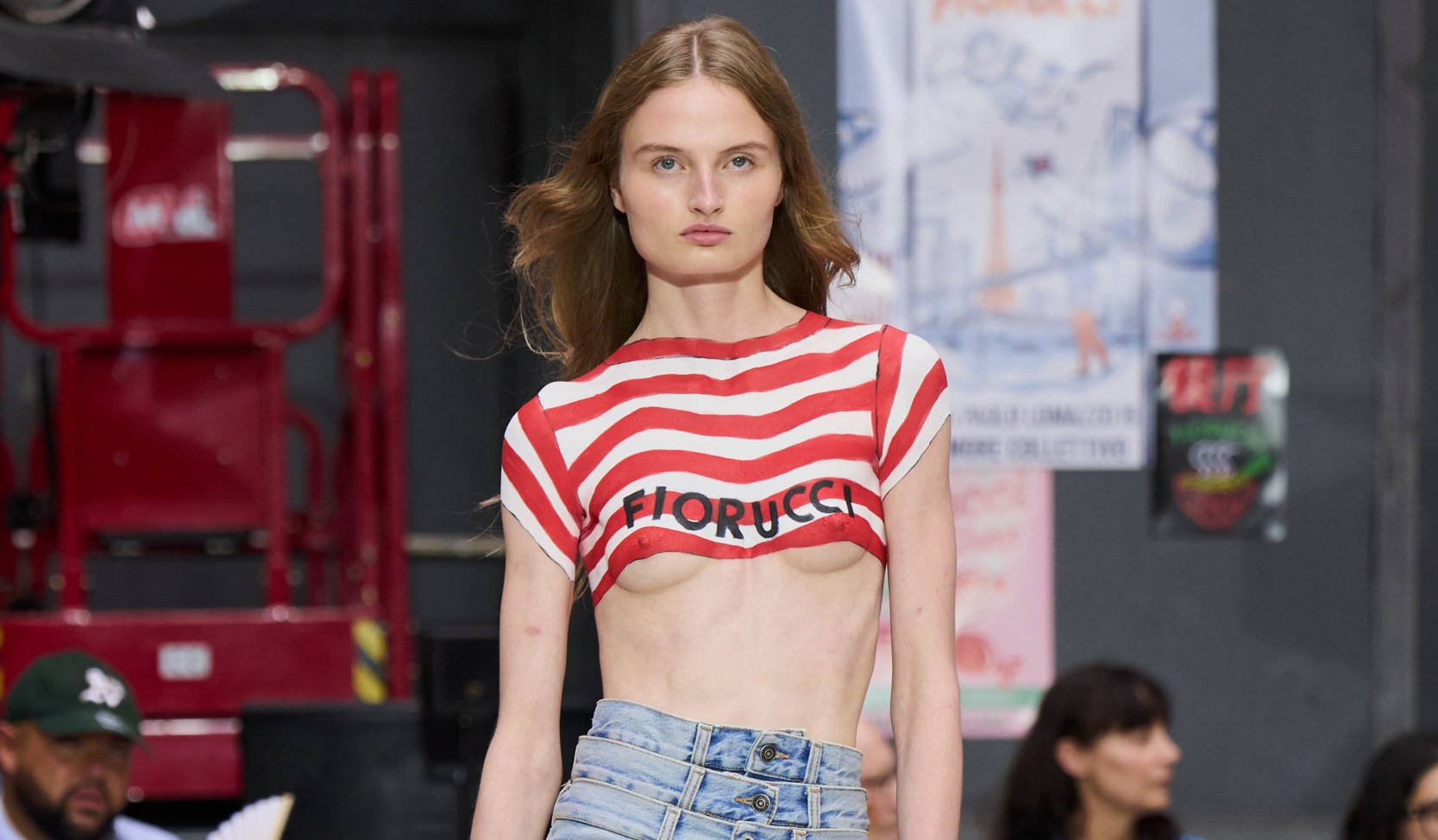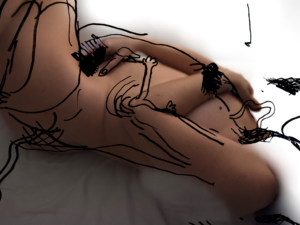Knitting flowers to protest for women’s rights: Fashion in it’s most meaningful form.
Forget about your grandmother’s knit. Turkish designer Cansu Aytac takes knitting to a whole new level, experimental, and most of all, political. Cansu is a witch from the most delightful sort, not because of her dark hair and flowy dressed but because of a weird attraction she has on people. Inspirational women are always welcome at Fräulein and Cansu Aytac agreed on having a talk with us about the message behind her first collection. With experiences as a design assistant at GmbH, Berlin’s most trailblazing fashion label, and recently graduated with a fashion design degree in knitwear at Central Saint Martins, she decided to use her platform to raise awareness against feminicide in Turkey. Powerful.



